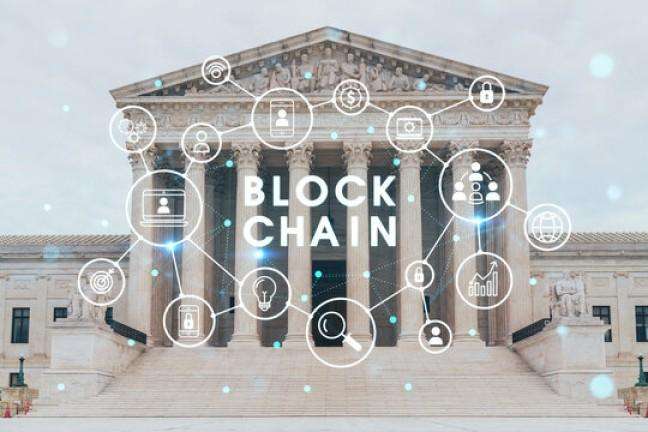Introduction
Blockchain has transformed industries, from finance to supply chains. Adept Blockchain offers a new way to think about decentralization. I will explain how it works, compare it with traditional blockchains, and discuss its potential applications. By the end, you will have a clear understanding of Adept Blockchain and its role in shaping the digital future.
Table of Contents
What Is Adept Blockchain?
Adept Blockchain is a decentralized ledger designed for efficiency and scalability. Unlike older blockchains, it reduces redundancy and optimizes data storage. Each node in the network contributes to validation, ensuring trust without excessive resource consumption.
Key Features
- Scalability – Handles more transactions per second than older blockchains.
- Security – Uses advanced cryptographic techniques.
- Energy Efficiency – Reduces computational waste.
- Interoperability – Integrates with other blockchain networks.
- Low Transaction Costs – Optimizes resource allocation.
How Adept Blockchain Compares to Traditional Blockchains
To understand Adept Blockchain, it helps to compare it with established networks like Bitcoin and Ethereum.
| Feature | Bitcoin Blockchain | Ethereum Blockchain | Adept Blockchain |
|---|---|---|---|
| Transaction Speed | 7 TPS | 30 TPS | 10,000+ TPS |
| Consensus Mechanism | Proof-of-Work | Proof-of-Stake | Hybrid PoS + DAG |
| Energy Efficiency | Low | Medium | High |
| Smart Contracts | No | Yes | Yes |
| Interoperability | Limited | Medium | High |
Bitcoin relies on Proof-of-Work, which consumes vast energy. Ethereum improved efficiency with Proof-of-Stake but still faces bottlenecks. Adept Blockchain combines Proof-of-Stake with Directed Acyclic Graph (DAG) structures to speed up validation while keeping costs low.
How Transactions Work in Adept Blockchain
Transactions in Adept Blockchain follow a streamlined process:
- Initiation – A user submits a transaction request.
- Validation – Validators confirm authenticity using cryptographic proofs.
- Block Creation – Valid transactions form new blocks.
- Finalization – The consensus mechanism confirms the block’s legitimacy.
- Storage & Accessibility – The block is permanently recorded and retrievable.
Each step minimizes inefficiencies. Since Adept Blockchain reduces redundant verification, transaction confirmation is faster.
Why Scalability Matters
Older blockchains struggle under high transaction loads. Bitcoin’s 7 TPS is insufficient for global commerce. Even Ethereum’s improvements fall short. Adept Blockchain solves this with its DAG-enhanced consensus.
Let’s consider an example:
- Bitcoin: If 1,000 users transact at once, a backlog forms. Each must wait in a queue.
- Ethereum: Handles more but still faces delays in high-traffic periods.
- Adept Blockchain: Processes thousands of transactions simultaneously, reducing wait times.
Real-World Applications
Adept Blockchain has broad applications, including:
Finance
Banks and payment providers require fast settlements. With near-instant transactions, Adept Blockchain eliminates delays and high fees.
Supply Chain
Companies track goods from production to delivery. Immutable records prevent fraud and ensure transparency.
Healthcare
Medical data needs security and accessibility. Adept Blockchain enables verified patient records without compromising privacy.
Gaming
Online games rely on secure transactions for in-game assets. Adept Blockchain ensures fraud-proof transactions and seamless asset transfers.
Security Measures in Adept Blockchain
Security is vital for any blockchain. Adept Blockchain integrates several protective measures:
- Multi-Layer Encryption – Prevents unauthorized access.
- Sharding Techniques – Reduces attack surfaces.
- Randomized Validators – Limits collusion.
- Smart Contract Audits – Ensures contract reliability.
Energy Efficiency and Sustainability
Mining in traditional blockchains consumes massive energy. Bitcoin’s annual energy use rivals small countries. Adept Blockchain’s hybrid consensus reduces waste.
| Blockchain Type | Energy Consumption |
|---|---|
| Bitcoin | 127 TWh/year |
| Ethereum (PoS) | 0.0026 TWh/year |
| Adept Blockchain | < 0.001 TWh/year |
Adept Blockchain’s lower energy footprint makes it viable for large-scale use.
The Economics of Adept Blockchain
Transaction fees affect adoption. Let’s compare:
| Blockchain | Average Fee (USD) |
|---|---|
| Bitcoin | $5.00 |
| Ethereum | $2.50 |
| Adept Blockchain | $0.01 |
Lower fees make Adept Blockchain attractive for micropayments, international transfers, and everyday transactions.
Challenges and Limitations
Despite advantages, no system is perfect. Adept Blockchain faces challenges like:
- Adoption Barriers – Users must shift from older blockchains.
- Regulatory Uncertainty – Governments continue developing blockchain policies.
- Network Security Risks – Newer networks face initial vulnerabilities.
- Infrastructure Requirements – Widespread use requires supporting infrastructure.
Overcoming these challenges will determine its long-term success.
The Future of Adept Blockchain
Blockchain continues evolving. Adept Blockchain positions itself as a future leader by offering speed, efficiency, and lower costs. Businesses, developers, and individuals stand to benefit from its innovations.
Conclusion
Adept Blockchain improves on existing models by addressing speed, efficiency, and cost concerns. Its hybrid consensus mechanism and optimized transaction processing make it a strong contender in the blockchain space. If adoption grows, it could redefine how industries operate in a decentralized world.





